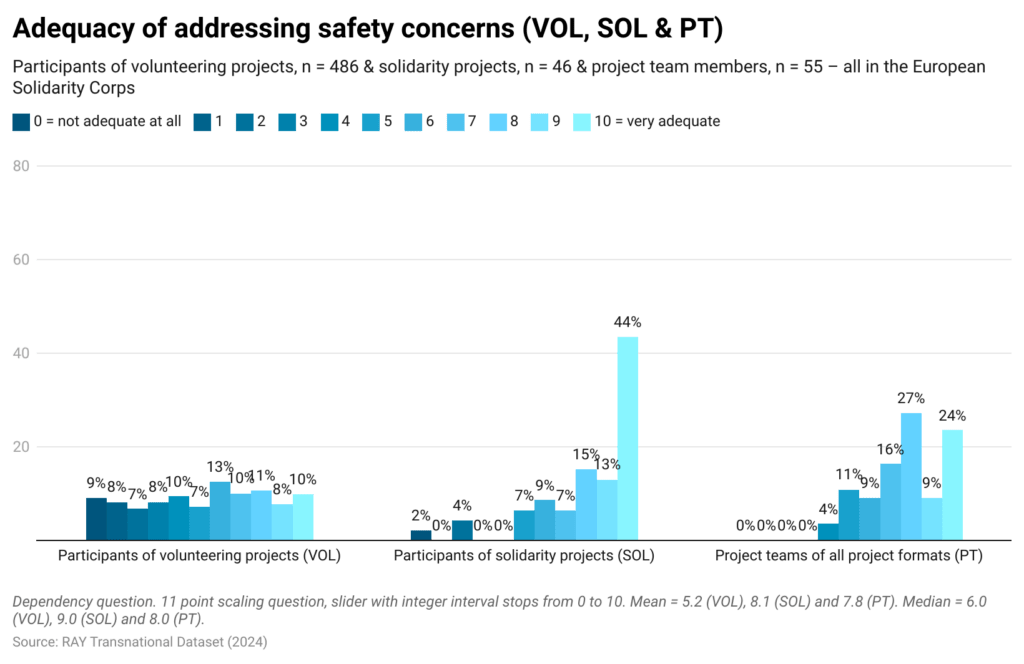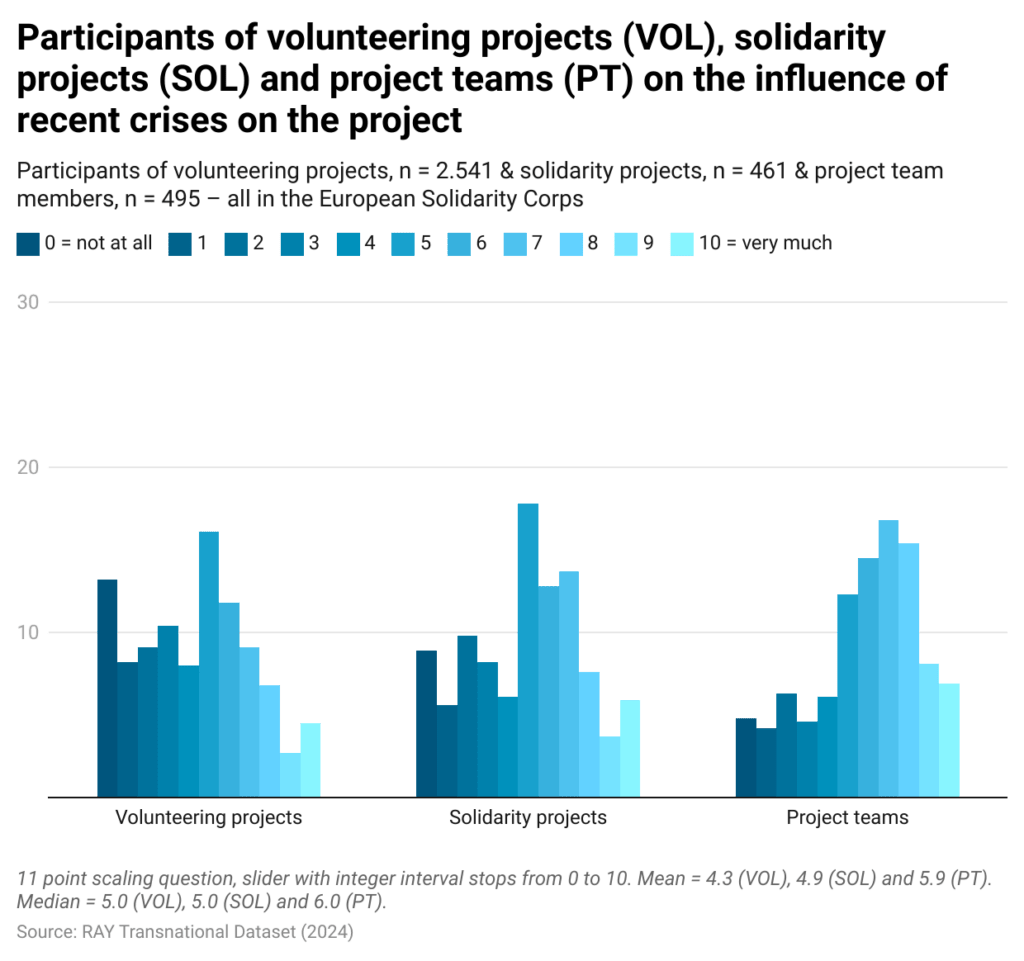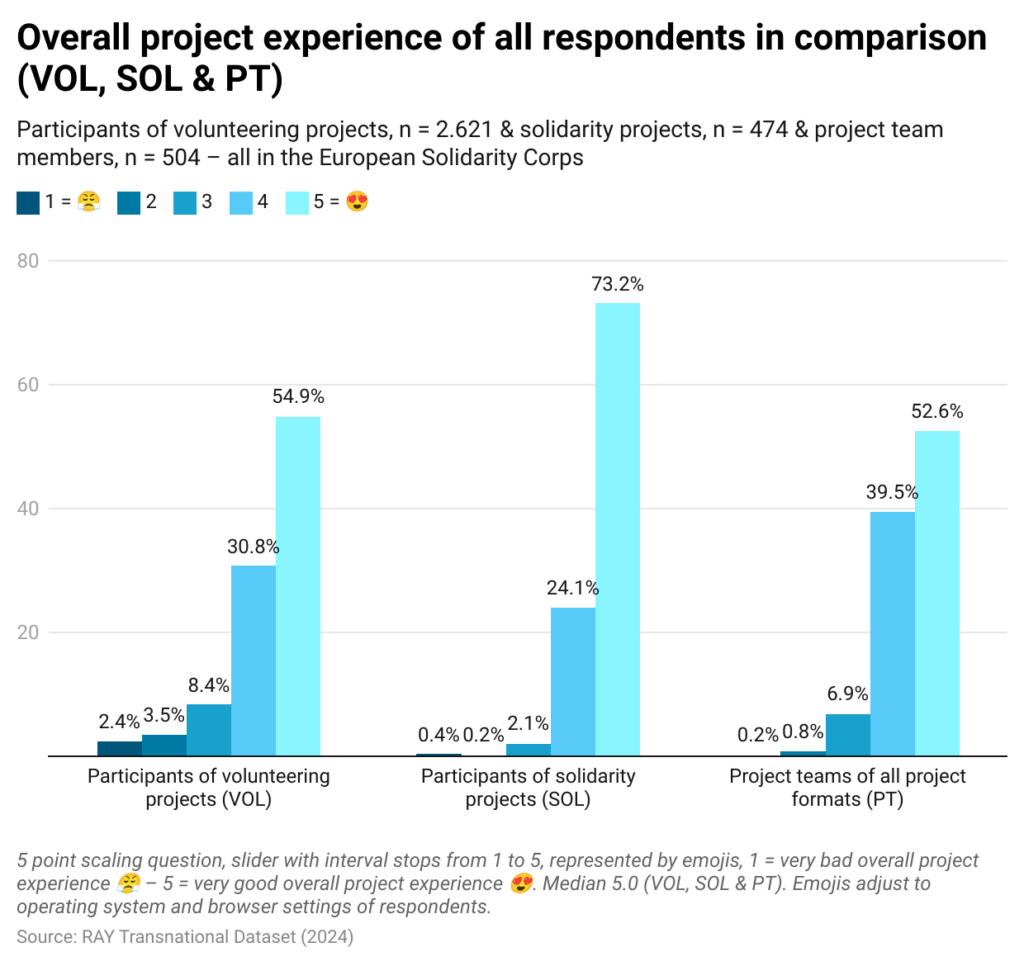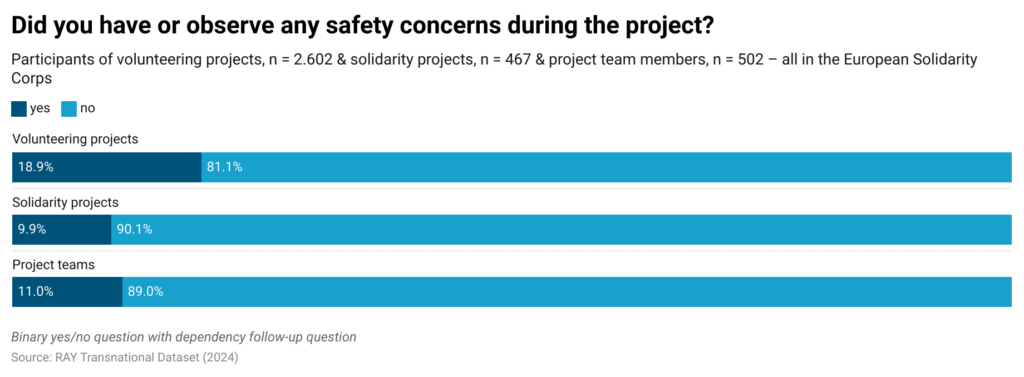Summary
The research report summarising the outcomes of our 2023 European Solidarity Corps monitoring surveys is now available. In less than seventy pages, it covers a wide range of issues and aspects.
Last year, we already published the key findings from the latest round of monitoring surveys for both European youth programmes – see the introductory article here and the full key findings documents here. Now, the second full research report, for the European Solidarity Corps, underpinning these key findings is available online!
 In less than seventy pages, the report covers a wide range of issues and aspects across nine chapters. And to make it easier to dive into the report, we have worked much more strongly with graphs and illustrations.
In less than seventy pages, the report covers a wide range of issues and aspects across nine chapters. And to make it easier to dive into the report, we have worked much more strongly with graphs and illustrations.
We start out with an introduction, explore the overall project experience, take a closer look at safety, dive into personal and organisational development, consider strategic aspects, and conclude with project management aspects and profiles of our respondents.
Below are three of our findings, based on the analysed responses of 3.095 project participants (2.621 in volunteering projects and 474 in solidarity projects) and 504 project team members, as a teaser and invitation to dive deeper into our report. Enjoy!
Projects were starkly influenced by multiple crises
Project participants in volunteering and solidarity projects as well as project team members agree that the influence of recent crises on the project was palpable. On an 11-point scale from 0 = not at all influential to 10 = very much influential, the means range from 4,3 (participants in volunteering projects) and 4,9 (participants in solidarity projects) to 5,9 (project teams), with medians of 5 and 6 respectively.
Empowering experiences, even in the face of crises
Despite the palpable influence of crises on the projects, the overall project experience in the European youth programmes remained very high. On a 5-point emoji scale from 1 = 😤 to 5 = 😍, the median of responses is 5.0, with 55% of volunteering project participants, 73% of solidarity project participants, and 53% of project team members assessing their overall project experience with 5 = 😍.
Safety needs a closer look
We asked project participants and project team members whether they had, or observed, any safety concerns throughout their project. This was the case for 19% of responding project participants in volunteering projects and 10% of responding project participants in solidarity projects.
We asked those respondents who had, or had observed, safety concerns, whether these concerns have been addressed adequately. It is these responses in particular that give rise to concern:



